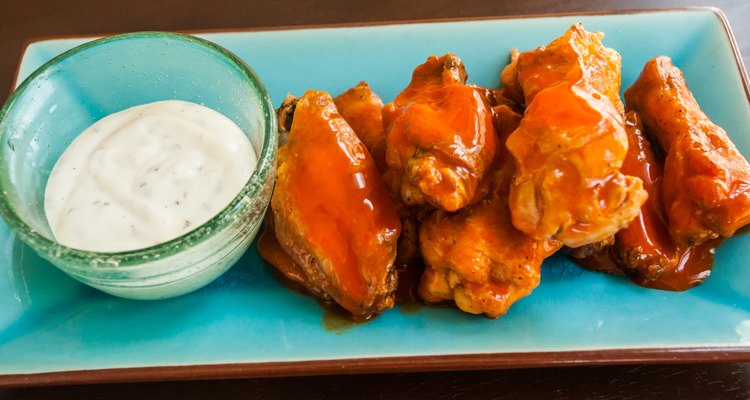
Although the phrase "chicken wings" typically evokes game night bowls of Buffalo wings -- 1.25 billion get polished off on Super Bowl Sunday alone -- it is worth experimenting with alternative approaches for a change up of a good thing. Those sold in U.S. supermarkets usually come separated into drumettes and wingettes with the tip removed.
Seasonings and Sauces
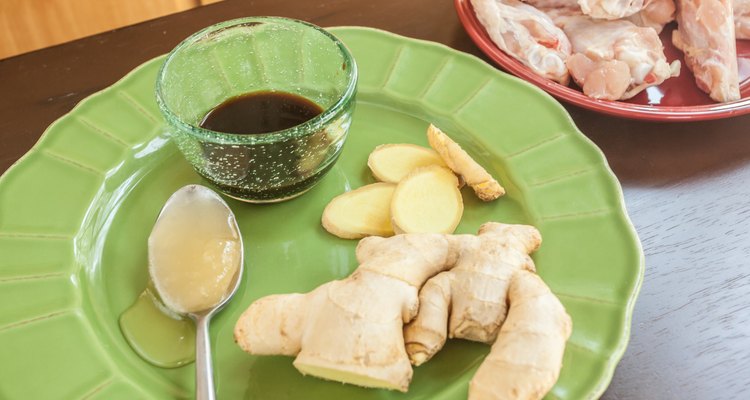
Without Buffalo sauce in particular, chicken wings might still be a discarded cut reserved mainly for making stock. Slathered in the sauce’s racy sheen, however, wings finally take flight. Combine hot sauce (or Sriracha), cayenne pepper, honey and butter in a pan and simmer it until it thickens for a basic Buffalo sauce.
To marinate overnight, place the wings in a resealable bag and add honey, soy sauce, ginger, chili and herbs for a thick, sticky Asian-inspired glaze.
For a Vietnamese version, incorporate fish sauce and chili paste for a tangy, potent marinade that caramelizes beautifully. For both, use half the mixture for the marinade and simmer the rest to coat the chicken wings during cooking, which provides the glazed effect.
Serve chicken wings with a ranch or blue cheese dip made of sour cream and blue cheese.
Deep Frying
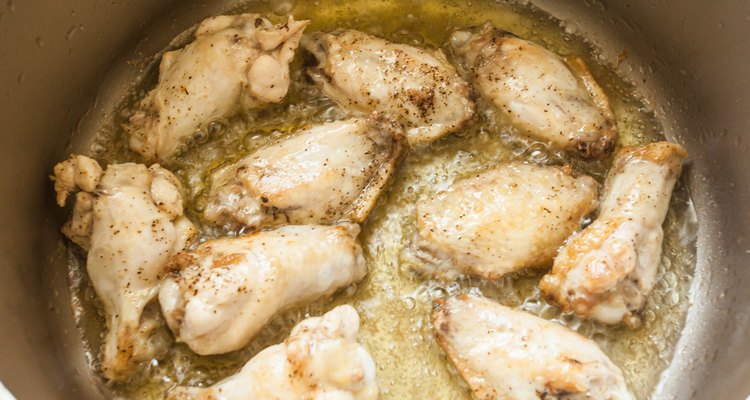
Fried chicken wings should be moist on the inside, though not too fatty, and crisp and blistered on the outside. There should be no need to coat the wings with breading or batter to achieve the crunch. The fat in the skin suffices, providing the oil is hot enough.
For a basic fried wing, cook the chicken in small batches at 400 degrees Fahrenheit for about 12 minutes. Don’t overcrowd the basket or the wings steam rather than fry.
Frying twice, however, produces the best results. Cook first at a low heat, around 275 degrees for 20 minutes. At this point the meat is cooked and the skin is reasonably crisp, but with more time, the collagen breaks down and excess moisture escapes. Either freeze the wings overnight or allow them to cool to room temperature. The second time around, cook the wings (even from frozen) in hot oil at 400 degrees until the skin bubbles and crisps.
Baking and Broiling
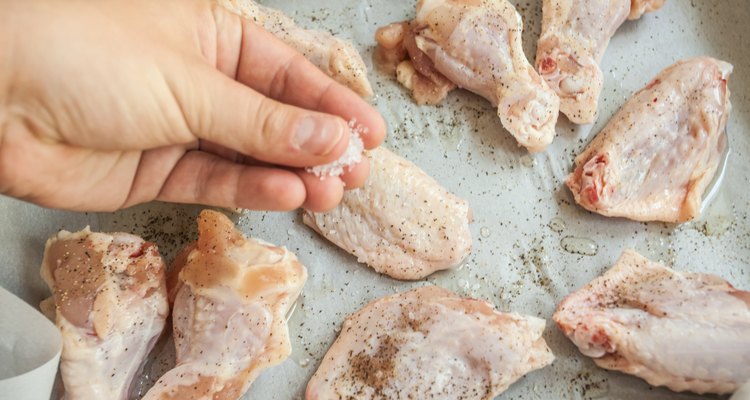
Baked wings work well in a big batch and are ideal for cooks who want to both prepare wings for a party and enjoy the party.
Heat the oven to 400 degrees and spread the wings in a single layer on a rack above a baking sheet, having tossed them in salt, pepper and a little oil. Bake the wings for 50 minutes until the skin is crispy and bubbled, then toss the wings in sauce and bake them for another 10 minutes.
Wings can also be cooked under a broiler. Coat the wings first in the Buffalo sauce and marinate them in the refrigerator for 30 minutes. Fire up the broiler, then place the wings on a rack about 8 inches below the heat. Broil the wings for 10 minutes, flip, then broil for another 10 minutes. Toss the wings in the remaining Buffalo sauce and serve.
Slow Grilling
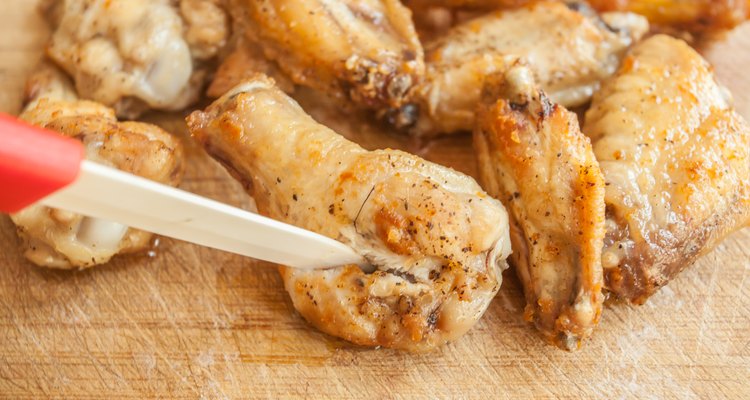
Wings destined for the grill can be first marinated in herbs, garlic and oil in a resealable bag and refrigerated for at least half an hour to fortify the meat for the dry heat of the grill.
Marinated or not, wings on the grill need attention because the fat drips down onto the coals, risking scorching from flare-ups. Allow the wings to reach room temperature and place them over a hot grill for 15 to 20 minutes, turning them often and moving out of the heat when the fat drips. Although a safe internal temperature of 165 degrees is the standard benchmark, getting a reliable reading with a cook’s thermometer can be fiddly. As a rule of thumb, the wings are ready when the skin is crisp and the juices run clear when you prick the wing with a knife. As an option, toss the grilled wings in glaze and finish them off in the oven at around 350 degrees for 10 minutes.
Related Articles
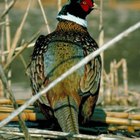
The Best Ways to Cook Pheasant Breast
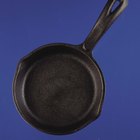
How to Bake Chicken Wings in Cast Iron

How Can I Cook Boneless Chicken Thigh ...

Should Chicken Wings Be Boiled Before ...

Can You Deep-Fry Chicken Wings With ...

Do You Put Hot Sauce on Wings Before or ...
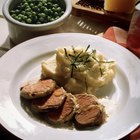
How to Make a Juicy Pork Tenderloin
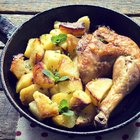
How to Sear and Bake Chicken

Do You Need to Defrost Chicken Wings ...
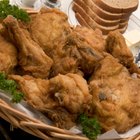
How to Par-Cook Chicken Before Frying
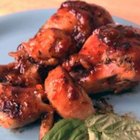
Baked BBQ Chicken Recipe

How to Cook Turkey Legs on the Grill
Chicken Marinade With Corn Starch and ...
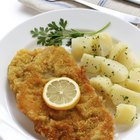
How to Fry Veal Cutlets

How Long Do You Cook Haddock Fillets in ...

How to Marinate BBQ Chicken Thighs & ...

How to Cook Grouse Breasts
How to Cook Roast Beef in a Cast-Iron ...
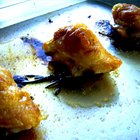
How to Cook Chicken Thighs
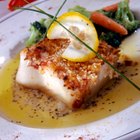
How to Pan Sear Sea Bass
References
- Food & Wine: Best Chicken Wings in the U.S.
- Epicurious: America’s Best Chicken Wings
- Jamie Oliver: Ginger & Honey Chicken Wings
- Epicurious: Crispy Baked Chicken Wings
- Serious Eats: The Fod Lab -- For the Best Buffalo Wings, Fry, Fry Again
- Bon Appetit: Herbed Grilled Chicken Wings
- The Kitchn: How to Make Buffalo Chicken Wings in the Oven
Writer Bio
Nick Marshall is a UK-based writer specializing in trends and best-practice in the B2B sector.
Photo Credits
Laura Beth Drilling/Demand Media